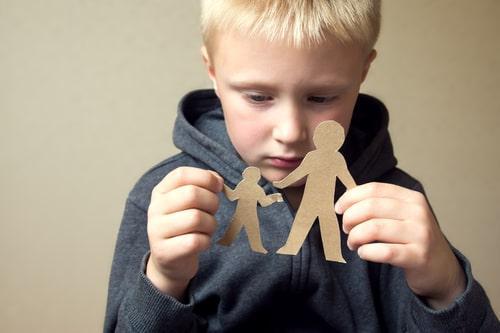116 N. York Street, 3rd Floor, Elmhurst, IL 60126
 312-605-4041
312-605-4041
Recent Blog Posts
How to Handle Your Family Business During Your Illinois Divorce
 Compared to many other countries in the world, the United States is fairly young, with rather unique founding principles. Though the U.S. is well known for certain freedoms such as gun ownership, the country also has a reputation for being a good place to live if you want to be a business owner. According to the U.S. Small Business Administration, there were around 30.7 million small businesses owned and operated in the country in 2019.
Compared to many other countries in the world, the United States is fairly young, with rather unique founding principles. Though the U.S. is well known for certain freedoms such as gun ownership, the country also has a reputation for being a good place to live if you want to be a business owner. According to the U.S. Small Business Administration, there were around 30.7 million small businesses owned and operated in the country in 2019.
Owning a small business can be extremely fulfilling, especially if it is a family-run business. However, owning a business can also pose some unique issues during a divorce. Your business is likely one of your biggest and most valuable assets, not to mention your biggest or perhaps even your only source of income. Needless to say, getting divorced when you own a business puts much more than just your business at risk.
Everything You Need to Know About Social Media and Your Illinois Divorce
 In the grand scheme of things, social media has not been around for very long, but it has had a tremendous effect on our lives in the time that it has been present. In 1997, the first official social media website, SixDegrees, launched, changing the way humans interact with one another forever. Since then, thousands of social media websites and apps have been created to help people communicate and connect with one another.
In the grand scheme of things, social media has not been around for very long, but it has had a tremendous effect on our lives in the time that it has been present. In 1997, the first official social media website, SixDegrees, launched, changing the way humans interact with one another forever. Since then, thousands of social media websites and apps have been created to help people communicate and connect with one another.
Today, social media is a normal part of many lives across the globe. According to data compiled by Hootsuite, a social media marketing company, about 70 percent of the American population is active on social media. However, studies are continually taking place on the effects of social media on the relationships between people and how social media can affect mood, among other things. One of the areas researchers have particularly been interested in has been how social media affects marriage and divorce.
How to Be an Effective Communicator During Your Illinois Divorce
 In the United States, divorce is not uncommon. According to the Centers for Disease Control and Prevention (CDC), an estimated 22 percent of marriages dissolve before they celebrate their fifth anniversary and that number increases by the 20-year mark when an estimated 53 percent of all first marriages have ended. People get divorced for all kinds of reasons, but whatever the reason, the divorce is still likely to be riddled with tension, stress, and emotion.
In the United States, divorce is not uncommon. According to the Centers for Disease Control and Prevention (CDC), an estimated 22 percent of marriages dissolve before they celebrate their fifth anniversary and that number increases by the 20-year mark when an estimated 53 percent of all first marriages have ended. People get divorced for all kinds of reasons, but whatever the reason, the divorce is still likely to be riddled with tension, stress, and emotion.
Even if you and your spouse communicated well during your marriage, things will likely be much different during the divorce process. A peaceful divorce is possible, but effective communication is key to making that work. Here are a few tips to help you improve your communication with your spouse during your Illinois divorce:
- Determine what your boundaries are. First, you should set clear boundaries for communication. You and your spouse were once very close to one another and it can be easy for you to cross a boundary without even realizing it. Make it clear to yourself and to your spouse what those boundaries are, such as when you are available to talk and in what form (phone, text, email, etc.)
How Will My Illinois Divorce Agreement Be Affected if My Ex or I Get Remarried?
 There are so many things that you and your spouse must figure out before you can actually settle your divorce. You must determine how you will divide your marital property, who will live where, whether or not either of you are entitled to spousal support and the list goes on. When you have children, that list is even longer because you must also determine how you and your spouse will share parenting time, how parental responsibilities will be allocated, how much child support will be paid each month and where the child will live. With all of that, finally signing on the dotted line of your divorce agreement can seem like finishing a marathon.
There are so many things that you and your spouse must figure out before you can actually settle your divorce. You must determine how you will divide your marital property, who will live where, whether or not either of you are entitled to spousal support and the list goes on. When you have children, that list is even longer because you must also determine how you and your spouse will share parenting time, how parental responsibilities will be allocated, how much child support will be paid each month and where the child will live. With all of that, finally signing on the dotted line of your divorce agreement can seem like finishing a marathon.
However, when you divorce a spouse that you have children with, you will never truly be completely divorced from them. In fact, some of the same issues that you had to settle during your divorce may pop up again if you or your spouse ever get remarried. An Illinois divorce lawyer can help you request a modification of your divorce agreement in case either you or your ex get remarried.
Understanding DCFS Adoptions in Illinois
 For the past couple of decades, the composition of the American family has been changing. Years ago, the “ideal” family was seen as a mother and a father, happily married with two biological children, a boy and a girl, and the family dog. Now, there is more diversity within American households than ever. Many children live in households without one of their biological parents or with their grandparents, without either parent at all. Many families have now also opened their arms and adopted children from many backgrounds.
For the past couple of decades, the composition of the American family has been changing. Years ago, the “ideal” family was seen as a mother and a father, happily married with two biological children, a boy and a girl, and the family dog. Now, there is more diversity within American households than ever. Many children live in households without one of their biological parents or with their grandparents, without either parent at all. Many families have now also opened their arms and adopted children from many backgrounds.
One of the most popular ways people adopt in Illinois is through the Department of Children and Family Services (DCFS.) These types of adoptions occur to children who are currently in the foster system in Illinois and often have unique situations. If you are looking to adopt a child from the foster system, an Illinois adoption lawyer can guide you through the process.
Children Come From a Variety of Backgrounds
Children who are in the custody of DCFS are in the foster care system. According to the Adoption and Foster Care Analysis and Reporting System, there were more than 125,000 children in U.S. foster care systems waiting to be adopted in 2018. The most important thing to realize before you make the decision to adopt a child who is in the foster care system is that these children often come with their own baggage. Children who are in the foster care system and were removed from their homes because their environment was not safe. These children often have suffered from neglect, physical violence, a parent's drug abuse or even sexual abuse.
Is There Ever a “Good” Time for Parents to Divorce?
 Ending a marriage is no easy decision, especially when you are a parent. As soon as you have children, your life is no longer about just you and you must also take into consideration how your actions will affect your child. Many parents put off the divorce and stay together for the kids in unhappy marriages in an effort to protect their children from the negative effects of divorce.
Ending a marriage is no easy decision, especially when you are a parent. As soon as you have children, your life is no longer about just you and you must also take into consideration how your actions will affect your child. Many parents put off the divorce and stay together for the kids in unhappy marriages in an effort to protect their children from the negative effects of divorce.
Studies have shown that it is not the divorce itself that leaves lasting effects on children, but rather, being exposed to their parents' constant conflict was responsible for causing negative effects. There is no way to completely shield your child from your divorce, but understanding how your child might react to your divorce can help you prepare and guide them through the coping process.
Effects on Children
Each child is different and is going to react differently to divorce based on a variety of factors, but age and maturity level are two of the biggest factors affecting your child's reactions. The age your child is when you get a divorce will also help you determine how you should help your child cope with the stress of the divorce. Here are the effects commonly observed in children of different age groups:
What Are Some Signs that a Spouse May Be Hiding Assets During Divorce?
 Finances play a huge role in any divorce. Most married couples have combined their financial lives in such a way that undoing this financial entanglement is often quite an undertaking. Division of assets is especially complicated when the couple owns complex assets such as a family business, real estate, investments, trust accounts, or stocks. High net worth and complex assets such as these also make it easier for a spouse to underreport assets and income. If you believe that your spouse may try to hide assets or lie about finances during divorce, reach out to an experienced divorce lawyer right away.
Finances play a huge role in any divorce. Most married couples have combined their financial lives in such a way that undoing this financial entanglement is often quite an undertaking. Division of assets is especially complicated when the couple owns complex assets such as a family business, real estate, investments, trust accounts, or stocks. High net worth and complex assets such as these also make it easier for a spouse to underreport assets and income. If you believe that your spouse may try to hide assets or lie about finances during divorce, reach out to an experienced divorce lawyer right away.
Methods of Hiding Assets and Underreporting Income
In order for a married couple to fairly divide their marital property and resolve other divorce issues, each spouse must be truthful regarding his or her finances. Unfortunately, some divorcing spouses attempt to manipulate property division, spousal support, and child support in their favor by lying about their income and assets. There are almost countless ways that a spouse may falsify his or her financial information to sway the divorce settlement in his or her favor. He or she may transfer assets from joint accounts to accounts that the other spouse does not know about or even transfer assets to friends or colleagues. Some spouses intentionally overpay the IRS in an effort to shelter funds from being divided during divorce. Business owners may delay invoicing clients, fabricate fake expenses, or significantly underreport business revenue.
Useful Tips to Help Deal with Parental Guilt During Your Divorce
 Any parent would agree that they would never do something to purposefully upset their child. Yet, for many children, divorce can be an upsetting event that can affect them deeply. Many parents are conflicted over whether or not they should get a divorce because of the effect it can have on their children. However, multiple studies have shown that children can adjust relatively easily to divorce as long as they are not subjected to their parent's arguments and are kept out of the conflict. Still, many parents feel guilty when they decide to get a divorce. Here are a few tips to help you combat any guilt you may feel during your divorce:
Any parent would agree that they would never do something to purposefully upset their child. Yet, for many children, divorce can be an upsetting event that can affect them deeply. Many parents are conflicted over whether or not they should get a divorce because of the effect it can have on their children. However, multiple studies have shown that children can adjust relatively easily to divorce as long as they are not subjected to their parent's arguments and are kept out of the conflict. Still, many parents feel guilty when they decide to get a divorce. Here are a few tips to help you combat any guilt you may feel during your divorce:
Talk to Your Children About It
Feeling guilty is a normal feeling that many divorcing parents have. It is OK to feel this guilt and it usually helps to be honest with your children about what you are feeling. This does not mean that you have to convey messages that you do not mean, but it may help you feel better if you tell your children that you truly are sorry for the sadness the divorce is causing them.
Four Things to Keep in Mind When Telling Your Spouse You Want a Divorce
 When there is trouble in your marriage, you and your spouse have to work together to try to overcome the issues that you are experiencing. In some situations, both spouses may not be on the same page or willing to cooperate with one another. No matter the situation, making the decision to end the marriage involves tons of difficult and conflicting emotions. This conversation is likely going to be one of the most stressful and heartbreaking conversations you will ever have with your spouse. Here are a few things that you should keep in mind when you break the news of divorce to your spouse:
When there is trouble in your marriage, you and your spouse have to work together to try to overcome the issues that you are experiencing. In some situations, both spouses may not be on the same page or willing to cooperate with one another. No matter the situation, making the decision to end the marriage involves tons of difficult and conflicting emotions. This conversation is likely going to be one of the most stressful and heartbreaking conversations you will ever have with your spouse. Here are a few things that you should keep in mind when you break the news of divorce to your spouse:
- Think before you make your decision. Before you tell your spouse that you want to get a divorce, you should make absolutely certain that this is what you want. Once you bring up the “D-word,” you cannot take it back. You should take your time to think your decision through before you say anything.
- Plan how you will break the news. Once you are certain that you want to get a divorce, you should begin thinking of how you should set up the conversation. Think about everything from what kind of mood they are in when you tell them to the location that you have the conversation. If you have children, you should ideally wait until there is a time that your children are not home.
Using Parallel Parenting as an Alternative to Co-Parenting
 When you have children with another person, you will forever be connected to that person, whether you like it or not. Divorcing couples who have minor children must figure out some sort of agreement for how they will divide their parenting time and how they will allocate their parental responsibilities. Most parents will opt to agree to co-parenting, meaning you work together with your child's other parent to raise them. However, co-parenting requires a specific degree of communication and cooperation, which not all couples have. For some high-conflict couples, a parallel parenting agreement is a much better option.
When you have children with another person, you will forever be connected to that person, whether you like it or not. Divorcing couples who have minor children must figure out some sort of agreement for how they will divide their parenting time and how they will allocate their parental responsibilities. Most parents will opt to agree to co-parenting, meaning you work together with your child's other parent to raise them. However, co-parenting requires a specific degree of communication and cooperation, which not all couples have. For some high-conflict couples, a parallel parenting agreement is a much better option.
What Is Parallel Parenting?
In a normal co-parenting relationship, both parents are able to communicate and are willing to cooperate with one another as they raise their children. In some situations, however, that is not possible. Couples who have exhibited an inability to get along with one another may do better in a parallel parenting situation. Parallel parenting is similar to co-parenting, but with parallel parenting, the parents are disengaged from one another and have limited communication with one another. This style of parenting is meant to reduce the conflict between the parents and the tension that the children may feel.




















